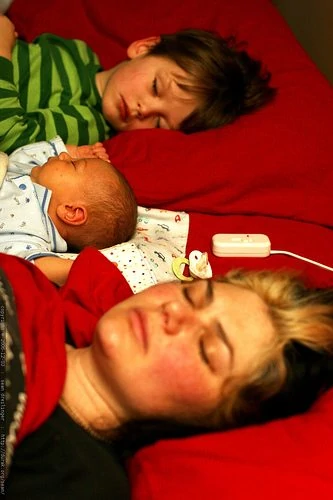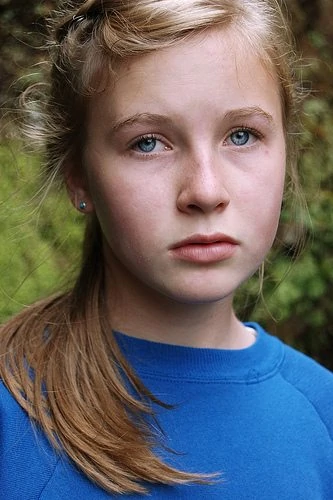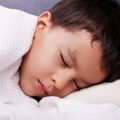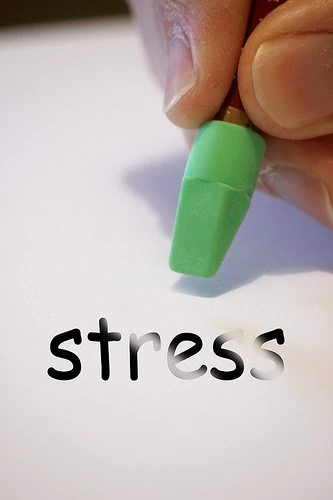
It was 5:30 in the morning.
Still, I thought it might be good to get up a little earlier than usual for my four year old granddaughter’s and my favorite ritual – though neither of us had got much sleep the night before. She’d had a bedtime meltdown. I stayed up late afterwards, savoring a bit of alone time.
I was really tired!
And the irony was that I’d spent a good chunk of that alone time watching a National Geographic special on sleep deprivation in America. As I headed to the kitchen for pancake time, one of the tips offered in the documentary really stood out. Later that day, Anna’s mom and I talked about establishing a consistent bedtime and ritual for her between our homes.
Developing good sleep hygiene habits is important for all of us, kids and adults alike. Losing a little sleep once in a while, as I did, is no big deal, but chronic sleep disturbance and sleep loss add up to one major health issue. Just consider a few of the facts highlighted in NatGeo’s Sleepless in America:
- Forty percent of adults are sleep-deprived. Among teens, fully 70% fall behind the recommended 9 to 10 hours of sleep nightly.
- “Every aspect of who you are as a human,” NTSB member Mark Rosekind explained, “every capability is degraded, impaired, when you lose sleep. What does that mean? Your decision-making, reaction time, situational awareness, memory, communication, and those things go down by 20 to 50 percent.”
- Research has shown links between sleep deprivation and increased risk of obesity, diabetes, cardiovascular disease, Alzheimer’s and even cancer. And sleep deprivation is “universal in every psychiatric condition, from bipolar disorder to anxiety disorders.”
Is it any wonder that sleep improvement is big business these days? Billions of dollars of business – an increase of nearly 10% since 2008.
As we say in our Wellness 1 course session on children’s health issues, sleep deprivation is the greatest hidden health issue facing our country.
We Lose More Than Just Sleep
In some ways, our society and culture are set up to get in the way of good sleep. One big hindrance, of course is overstimulation from our always-connected, always-online world, as we’ve written about plenty before. But also adults are overworked and kids are overscheduled. Come the weekend, we may stay up too late doing things we couldn’t get to before – or sleep in too much in an effort to compensate for sleep lost during the week. (Unfortunately, a longer term effort is needed, say researchers.)
For kids, ever earlier start times for school are yet another barrier. These days, some schools start before 7:30 in the morning – even as evidence of the folly of this continues to mount. The record shows that more sleep means higher test scores and lower rates of depression for teens. “Even one more hour of sleep per night,” writes psychologist Dr. John Cline at Psychology Today, “results in improved mood, attention and learning for students.”
Sleep also, as the documentary noted, can “inspire creativity, re-balance emotions, help refresh cardiovascular health, metabolic health and boost our immune system.”
And, fortunately, better sleep habits can be developed – at any age.
How to Get More, High Quality Sleep

- Have a regular bedtime and wake time.
- Keep the bedroom dark and cool.
- Keep media and technology out of the bedroom.
- Make the bedroom environment a haven.
- Limit or avoid caffeine, alcohol and nicotine, all of which are bad for sleep.
Other recommendations that Lynea makes in both her private counseling practice and our Yoga Calm work include:
- Make sleep the priority and first thing on the schedule. For example, for families with school age children, schedule 9-10 hours of sleep time, then school, then family time and everything else after this. Given the health issue of sleep loss, replacing sleep with sports or even homework is the same as – or even worse than – chronically skipping meals.
- Practice relaxing. Pediatric nurses at the Mayo Clinic and the University of Minnesota Masonic Children’s Hospital are using Yoga Calm’s storytelling and other relaxation techniques to help children and teens get comfortable with that transition zone before sleep. (This is often a time when fears and the effects of past trauma show up.)
- For the 70 million Americans who suffer from insomnia, a cognitive behavioral therapy approach (CBT-I) has proven effective.
- Don’t get in bed unless you’re sleepy and don’t stay in bed unless you’re asleep. This creates a positive association of the bed with sleeping and helps condition your “sleep response,” helping you fall asleep more quickly.
Bear image by MJ Boswell, via Flickr





